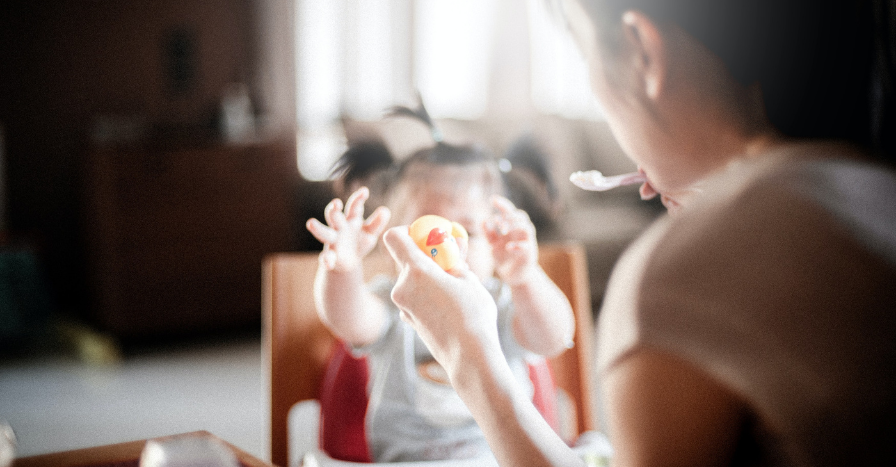
The Philosophy of Motherhood: Cultivating a Domestic Church
Anne Marie SchlueterFrom Our Sponsor, Ave Maria University
Home. It’s a triggering word. Perhaps it evokes memories of a bygone childhood. The smell of warm chocolate chip cookies wafting from the oven. The attention of a doting mother. The sound of laughter as the family gathers around the kitchen table for a hearty meal. The warmth of being tucked into bed after perusing picture books ending with “happily ever after.”
Or, perhaps, the scene is more melancholy. The constant bickering of parents. Sibling confrontations. Messy countertops. Mounds of laundry. A place vacant of the words “I love you.” Regardless of which scene “home” conjures up, its environment has left an indelible mark on each of us.
In the Philosophy of Motherhood course offered exclusively at Ave Maria University, Dr. Janice Breidenbach teaches how motherhood is universal and forms the home. The mother’s impact is crucial to the formation of the family, and therefore, it should be studied and understood to equip those seeking to answer motherhood’s vocational call.
I recently attended Breidenbach’s class where she unpacked the topic of the home as the domestic church. On this particular evening, Breidenbach was aided by Dr. Tim Reilly, a psychology professor at AMU, who explained how the physical things in a home matter.
He equated the physical home environment to a movie’s soundtrack, which influences how the viewer perceives the overall film. As the child grows to experience the world, the physical environment of the home sets the tone for how the child will ultimately view God, her- or himself, and others.
This “soundtrack” is influenced by the intentionality of the mother as she cultivates order within the home. Consider the beauty of the Cathedral—magnificent, ordered, and meant to cultivate reverence towards God, who is transcendent and immanent. Its beauty reminds us of the presence of God and even disposes us towards it. “Material beauty supports our longing for God,” Breidenbach said. “The domestic church isn’t any different; the physical beauty points to the spiritual, opening hearts to God.”
Breidenbach then turned to the notion of the home as a womb: a place of beginning, safety, nourishment, growth—of being alive while learning what it is to be alive. She talked about how the goal was to “copy Eden.” Eden was a place of incredible beauty, peace, and intimacy with the Creator. It was a type of first church, and so it makes sense for the mother to model the home after this beautiful garden.
The mother’s role in cultivating this domestic church is irreplaceable because she is the first to come into contact with the child. Her role in fostering beauty and creating space for encounter with God cannot be overstated. This is perhaps manifested most poignantly in the “nesting” stage of pregnancy; the pregnant woman’s desire to have everything “just so” and ready for her coming child is not only beautiful, but holy, as it is reflective of how she was created.
Homemaking, far from being the stereotype of “shut the woman up and put her in the kitchen,” is one of the most empowering things a woman can do. Homemakers may be seen as having no societal value, but this cultural stigma could not be further from the truth.
The goal of the mother is to lead her children to Jesus, and from there, to equip them to discern their vocations. The space this happens in is sacred. The home is the physical sign of the love between the family, brought about by husband and wife, and grown and birthed in particular by the mother. Homemaking is the mother’s heart for her family, even when it is manifested in the mundane tasks of laundry and dirty dishes.
There is power in the sacrifice to cultivate order through menial tasks, in particular when the mother looks to the example of Our Lady. The Blessed Mother perfectly teaches how to build a domestic church. In an instant, her “yes” transformed all of her priorities, shifted her energy, and suddenly, her whole life centered on stewarding the great gift from God—his Son. Mothers today have her as the example of making space to steward the great gifts they are given from God—their children.
Far from being discouraged by this image of anointed motherhood and the domestic church, women can draw strength from the Blessed Virgin Mary. Regardless of negative experiences with motherhood or personal limitations, women called to be mothers have tremendous access to grace to live out their vocations. The woman was created to show God’s beauty to the world, particularly, to her own little world: her husband and children. It isn’t about being perfect or having a designer home; rather, it is in intentionality, remaining faithful in the littlest moments and ordering homes and hearts in such a way so as to glorify God.
The Philosophy of Motherhood class beckons us to explore the obvious, the lasting impact of the home and the irreplaceable place of the mother. For a society seemingly bent on the destruction of the family, these themes are counter-cultural and transformative.
Our Lady, Holy Mother of God, pray for us!
It’s Here: The Bible & Catechism App!
The word of God and the complete teachings of the Catholic Church. Answers and commentary by Fr. Mike Schmitz, Jeff Cavins, and other experts. Video, audio, and textual commentary. Right on your phone.
You May Also Like:
Motherhood Redeemed (with Kimberly Cook)
St. Monica: The Fruitful Tears of a Mother
Biblical Wisdom for Your Motherhood (with Kimberly Hahn)
Anne Marie Schlueter is the Social Media and Convergence Lab Coordinator for Ave Maria University, where she also received her degree in communications. Her work has appeared on prominent Catholic blogs, including Life Teen, Blessed Is She, and The Young Catholic Woman. Anne Marie has spoken to hundreds of audiences of all ages on encountering Jesus, healthy relationships, and authentic womanhood. You can connect with her on Instagram @anne_marie_schlueter.